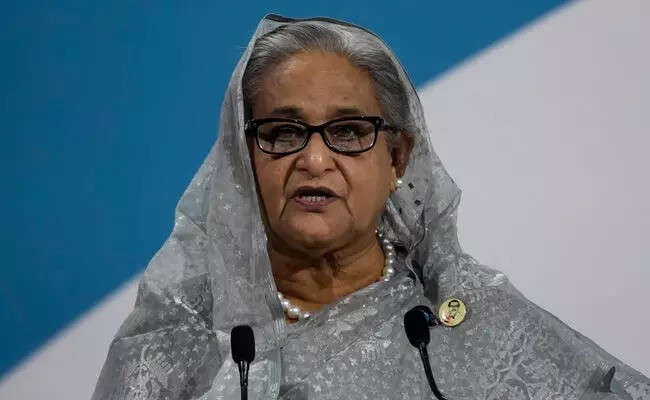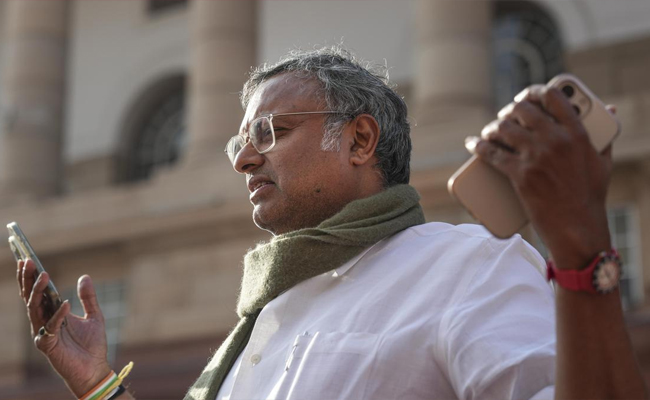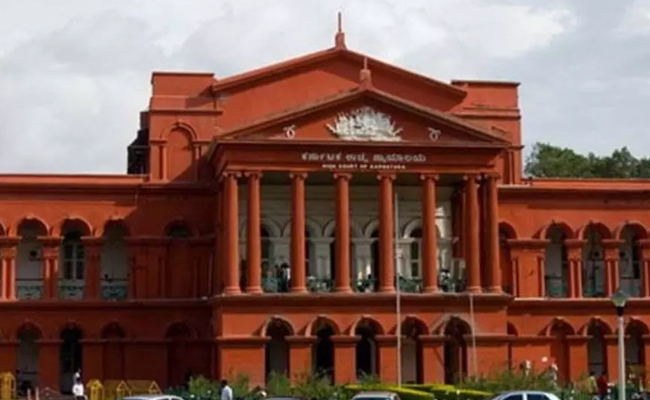New Delhi: Sheikh Hasina, the former Prime Minister of Bangladesh, had prepared a speech accusing the United States of attempting a regime change in Bangladesh. However, she was unable to deliver it due to protests reaching her residence, which led to security officers advising her to leave the country immediately. The speech, now disclosed in India, reveals Hasina's claims about the US plotting against her government and her assertion that surrendering sovereignty over Saint Martin Island could have maintained her power.
In the undelivered speech, Hasina expressed her resignation as a reluctant decision to prevent further loss of life and claimed that her removal from power was a result of a larger conspiracy. She also addressed her party, the Awami League, urging them to remain hopeful and promising a return. Hasina refuted claims that she called protesting students "Razakars," stating that her words were misinterpreted.
Following her resignation and escape, the US said, "The United States has long called for respecting democratic rights in Bangladesh, and we urge that the interim government formation be democratic and inclusive." Washington DC also said that the US greatly values its relationship with the people of Bangladesh.
Earlier, US State Department spokesperson Matthew Miller had condemned the violence against protesters. "We condemn any violence against peaceful protesters. We've been watching this matter very closely, both from our embassy and officials here in Washington. (We) have been monitoring the protests, have seen the reports of people dying, being killed in the protests. And we again, call on the government to uphold individual's rights to protest peacefully," he had said.
Hasina's departure came amid violent student protests, which began over reservation issues and escalated into widespread unrest. The interim government, led by Nobel laureate Muhammad Yunus, now faces the challenge of managing ongoing tensions and protecting minority communities.
"There are many standing by to make your efforts futile. Don't fail this time," Muhammad Yunus said, urging them to protect Hindu, Christian, and Buddhist families from harm. "Are they not the people of this country? You have been able to save the country; can't you save some families?...You must say - no one can harm them. They are my brothers; we fought together, and we will stay together," he has said.
In a major development, Bangladesh's Chief Justice Obaidul Hassan and five other top judges on Saturday were forced to resign amid massive student protests demanding a revamp of the judiciary.
Let the Truth be known. If you read VB and like VB, please be a VB Supporter and Help us deliver the Truth to one and all.
New Delhi (PTI): At least 10 flights were cancelled and more than 270 flights were delayed at the Delhi airport due to fog and low visibility conditions on Tuesday.
An official said 6 arrivals and 4 departures have been cancelled for the day.
ALSO READ: Central laboratory confirms avian flu outbreak in parts of Alappuzha, Kottayam districts
Over 270 flights have been delayed and the average delay time for departures is 29 minutes, as per information available on flight tracking website Flightradar24.com.
"Visibility at the airport is improving; however, flight departures for certain destinations may experience delay," Delhi airport operator DIAL said in a post on X.
The Indira Gandhi International Airport (IGIA) in the national capital handles around 1,300 flight movements daily.





